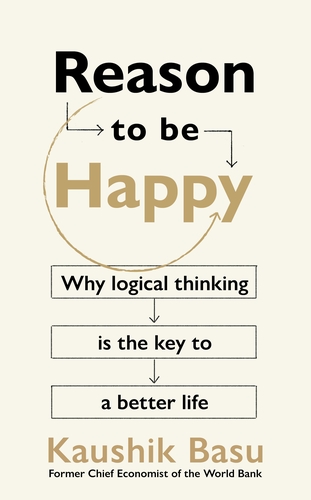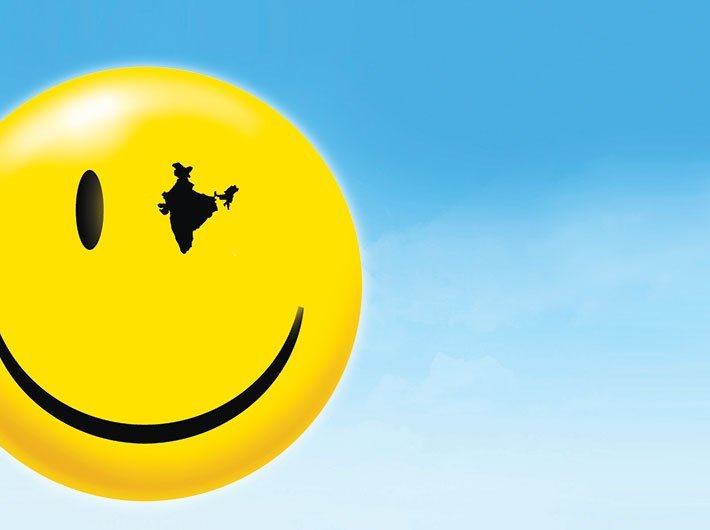Kaushik Basu’s new work is pleasure to read. It can help in ironing out the mess around us too
Reason to Be Happy: Why logical thinking is the key to a better life
By Kaushik Basu
Torva/Transworld, 224 pages
 Philosophy, in its origins, attempted to answer questions that all of us ask: How shall we live? How to make sense if this all? Then, with accumulation of knowledge, it became technical and jargon-heavy. A subject meant for seminars and dissertations, with little connection to the lived reality. So, there came a kind of movement, Philosophy as a Way of Life, bringing basic lessons of philosophy to the common folk again.
Philosophy, in its origins, attempted to answer questions that all of us ask: How shall we live? How to make sense if this all? Then, with accumulation of knowledge, it became technical and jargon-heavy. A subject meant for seminars and dissertations, with little connection to the lived reality. So, there came a kind of movement, Philosophy as a Way of Life, bringing basic lessons of philosophy to the common folk again.
Come to think of it, that story is not unique to philosophy and many other branches of knowledge share that fate. In the recent decades, psychology and economics, sometimes in combination, have offered life advice to non-specialists. The classic in this area is ‘Thinking Fast and Slow’ by Daniel Kahneman (who died last month), a psychologist who won the Nobel for economics. Mathematicians too have made forays in this evergreen area of (serious, sensible, meaningful) self-help.
Kaushik Basu is an economist many Indian readers know for witty columns and comments via tweets. Here he offers guidance on using logic (that’s ‘reason’ of the title) to think through everyday problems. For a seemingly lightweight book, it packs in a lot: there’s a whole section on ‘Game Theory in Everyday Life’ including topics like Prisoner’s Dilemma and Nash Equilibrium. The reader-friendly prose has the tone of a lively professor, gently dropping anecdotes and jokes, walking us through fascinating thought experiments and puzzles. But before the reader knows, the text has moved from personal-life issues to the larger questions of our community life. It ends, fittingly, with a chapter on ‘Manifesto for a Better World’.
‘Reason to Be Happy’ is billed as “a paean to the power of rationality”. The understanding is: If you want to have a good life and even make the world a better place, you can start by thinking clearly. It works, mostly, and therefore, this book is truly helpful in clearing up our unexamined, ready-to-use thought packets.
There is a tradition in the western philosophy that puts our ability to reason at the heart of it all. Stoicism might be its best example. Epictetus has God telling the human being that he has given him the “best part of Him”, namely, the reasoning ability. Many of the cheap best-seller self-help books, with or without asterisks in the title, are presenting the basics of stoicism in the parlance of our times.
Yet, the human mind being what it is, it sometimes seems reasoning alone won’t do. Economics itself was built keeping a rational agent at the centre, who turned out to be no so rational after all. Both Nietzsche and Gandhi knew the limits of reason. Therapies like Cognitive Behaviour Therapy, a direct offshoot of stoicism, would show us the way to “stubbornly refuse” to make ourselves miserable about anything. Still, parts of life sometimes slip out, and an irrational impulse grips individuals – and nations too, as headlines tell us every day.
Can reason find a way to defend itself against its opposite number when the rules of the game are thrown out? Professor Basu may well come up with the answer in a sequel.
